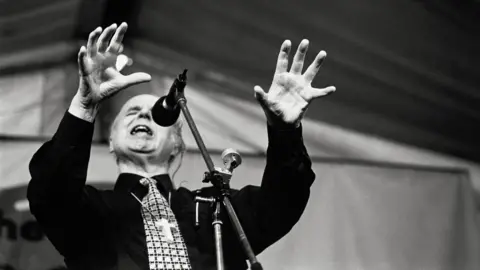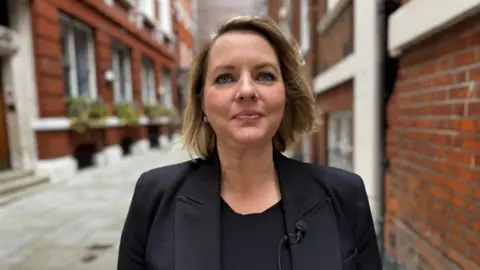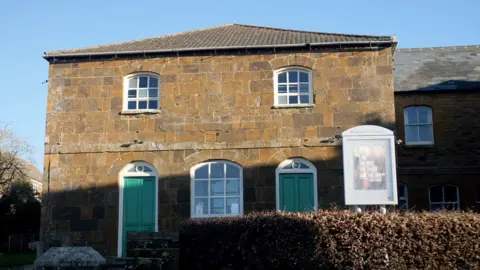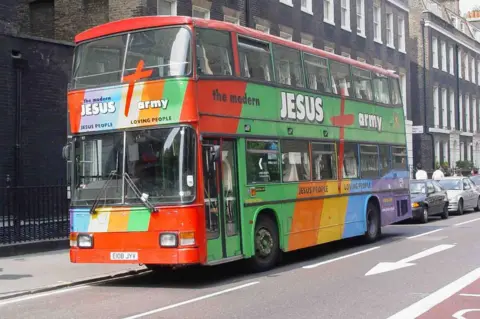
 John Angerson
John Angerson
A scheme to compensate members of a defunct religious cult known as the Jesus Army has identified 539 alleged perpetrators of abuse, and revealed about one in six children had been sexually abused.
It is thought some of those accused, including 162 former leaders, may have taken up roles in different churches and Northamptonshire Police is liaising with relevant local authorities to see if any safeguarding action is required.
The Jesus Fellowship Church, which disbanded in 2019 after the BBC revealed allegations of widespread child abuse, recruited thousands of people to live in close-knit, puritanical communities in Northamptonshire, London and the Midlands.
The Jesus Fellowship Community Trust (JFCT), which has been winding up the group’s affairs, said it was sorry for “the severely detrimental impact” on people’s lives, and hoped the conclusion of the redress scheme would “provide an opportunity to look to the future” for all those affected during a 50-year period.
The findings have been been passed to the police. The trust’s final report revealed:
- One in six children were estimated to have been sexually abused
- 601 individuals applied for damages, though the trust recognised the true number of victims was likely to be greater
- A total of £7.7m has been paid directly to applicants of the scheme
- 539 individuals were identified as perpetrators of alleged abuse
- The trust accepted ultimate responsibility for 264 alleged abusers, 61% of them former leaders
A spokesperson for Northamptonshire Police, which has carried out two investigations into the Jesus Army, said it had been “engaging with the redress scheme”, however “no new offences had been identified yet”.
“Suspects highlighted by the process will be looked into using police systems and appropriate safeguarding action will be taken as a result,” the spokesperson added.
To date about 12 former members of the Jesus Fellowship Church have been convicted for indecent assaults and other offences.


Kathleen Hallisey, from Hugh James solicitors, is representing more than 100 survivors and said she was “saddened but unsurprised” so many more potential abusers had been identified.
“What is particularly concerning is that many have never been brought to justice and are walking freely among us.
“Also, safeguarding checks are not foolproof because they don’t necessarily mean that suspects can’t move into other organisations and perpetrate abuse.
“We don’t have mandatory reporting in this country,” Ms Hallisey said, “so there’s no requirement for anybody to report abuse, and that’s scary and sobering.”


Phillipa Barnes, 46, grew up in communal houses and as a teenager testified in court against an elder who was the first member of the group to be convicted of sexually assaulting a young person.
She said she was shunned by the leadership and fled the group before eventually founding the Jesus Fellowship Survivors Association.
“It’s been a difficult journey with a lot of heartache for many victims who haven’t got the justice, recompense or recognition they really deserved.
“They’ve been dismissed and minimised again, and I wouldn’t have set this up if I’d known how we were going to be treated.”
Ms Barnes is among hundreds of people who were harmed in childhood, including by being forced to endure an extreme schedule of worship; having toys and games removed, and being separated from their families.
She said she was periodically stalked by a paedophile and sexually abused by her peers. She received a total of £22,000 under the redress scheme.
- If you are affected by any of the issues in this story, you can find information and support on the BBC Action Line pages.
The Jesus Fellowship was founded in Bugbrooke Chapel, Northamptonshire, in 1969 by the late Baptist preacher, Noel Stanton, who has been accused of numerous sexual assaults on boys.


Members were put to work at Jesus Fellowship businesses, then bused into city centres at weekends to evangelise and encourage others to join the movement.
Stanton delivered regular sermons to community residents, which included exorcisms and speaking in tongues. Members of the congregation were urged to publicly recant their sins.
In the wake of the cult’s closure in 2019 the JFCT began liquidating assets including a large property portfolio worth an estimated £50m.
It is understood some of that money has been spent on purchasing homes for “Listed Beneficiaries”, including at least one former senior leader, Kelly Bartholomew, who died last year and is among those accused of abusing children.

 British Museum
British Museum
The trust said the group “repeatedly failed to report abuse to authorities and actively discouraged victims from involving others”.
It thanked “all those who shared their voice for their courage in bringing these harmful experiences to light”.
The JFCT is planning to make further discretionary payments to former members with any surplus funds once it has been dissolved, however the process has been delayed by a number of civil claims in the courts.
In 2020, five senior leaders known as the Apostles, were found to have covered-up the abuse of women and children following an independent inquiry commissioned by the Jesus Fellowship.
A summary of Vicky Lawson-Brown’s 800-page report, which was leaked to the BBC, said the men had colluded with sex offenders and mishandled complaints.








